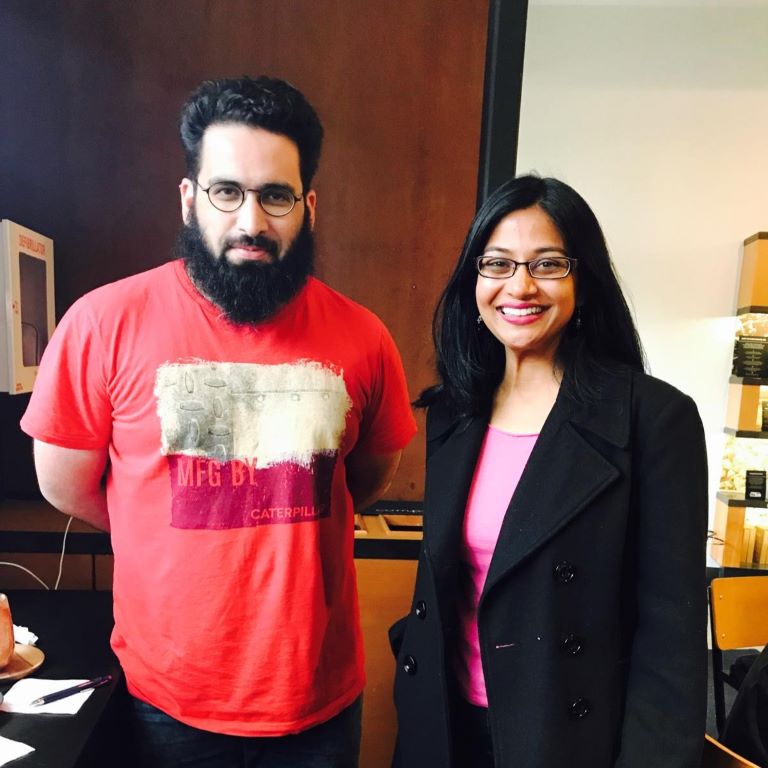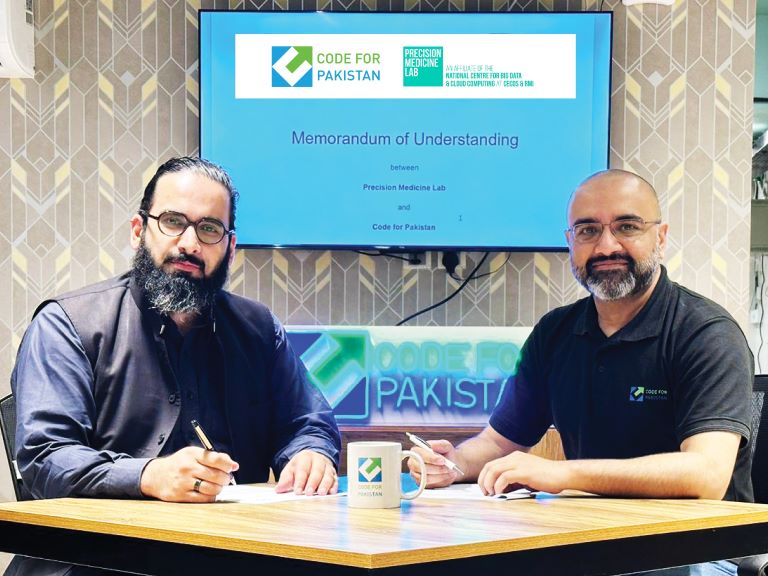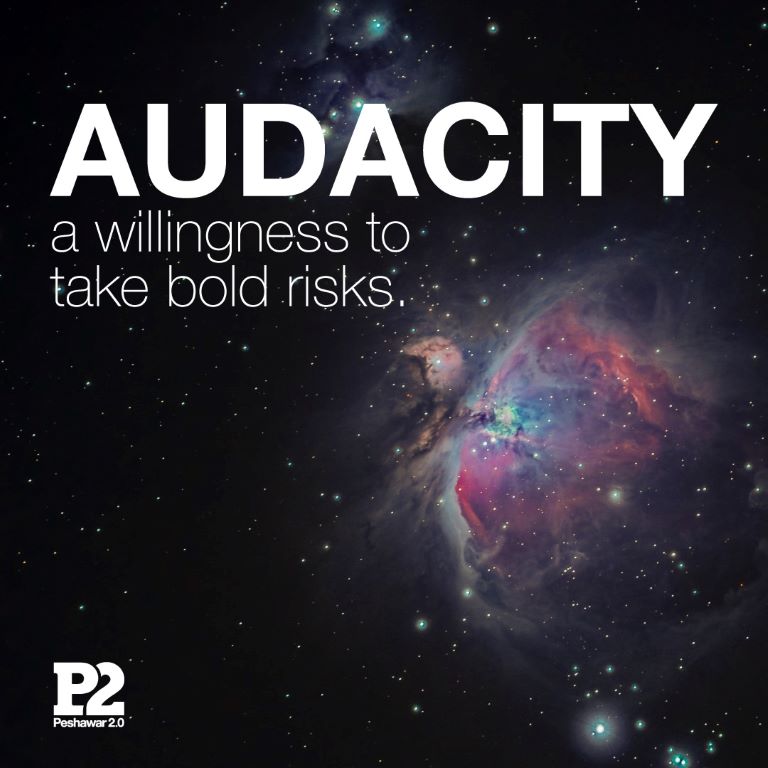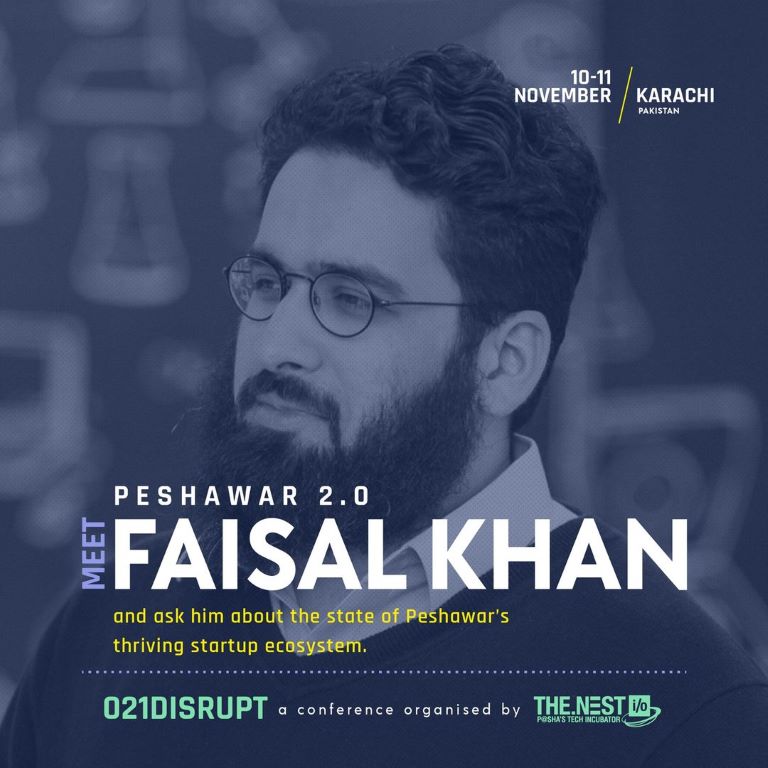
Dr Faisal Khan has wavy black hair tied back in a ponytail. He has a black beard, black glasses, and a matching black waistcoat. In another life, he could have been an artist, maybe even a philosopher or poet. Not too far from the whimsical, he runs a research laboratory using cutting-edge technology. A healthcare cluster of data, biology, and medicine to improve individual patient outcomes in the clinic, applying art to it all.
"People often say you need a great lab for science to happen. Some say you need a lot of money. But for any good scientific piece of work, what you really need is great people with great minds—open minds, curious minds—infinitely curious minds."
Dr Faisal is a graduate of the University of Oxford, where he completed his doctoral studies at the intersection of Cell Biology and Systems Biology as a member of the Oxford Protein Informatics Group. He worked on integrating biological data using machine-learning techniques to predict gene function.
The journey of integrating computers with biology began early in his career. "That toolkit has been helping me here now," he says while giving a tour of his lab in the heart of Peshawar.
Born and raised in Riyadh, he had to make a life-changing decision after high school. In the wake of 9/11, he chose to return to Peshawar instead of pursuing undergraduate studies in the West. "It's the city of flowers but also the city of bad press". Between 2003 and 2007, the city faced challenging times, he recalls. "I enrolled in a biotech undergraduate program at the University of Peshawar."
Soon after graduation, Dr Faisal was invited by one of his professors to join him in Lahore. "We are building a school of Science and Engineering. Why don't you come over and help us with something?" Getting away from Peshawar for a bit seemed like a good idea.
He took his first Oxford interview during his short stint at the Lahore University of Management Sciences (LUMS). That same year, Peshawar faced frequent bomb blasts. Amid government changes and visa complications, Dr Faisal started his Master's program at Oxford just in the nick of time.
After five and a half years at Oxford, he reassessed the situation.
"Peshawar, Riyadh, or Oxford? It was tough to leave Oxford. It was so academic, and I had everything I could wish for around me. Intellectually, I was hungry but, at the same time, satisfied. But now, I was hungry for action."
In September of 2013, he returned to Peshawar, where action awaited.
Peshawar 2.0
Sometime in 2013, after their day jobs, Khan and his friends—Bilal, Salman, and Uzair—gathered regularly to brainstorm ideas on how they could contribute to Peshawar's civic ecosystem.
"Peshawar had this dense cluster of universities within a couple of miles radius, with almost 100,000 kids coming from the entire region, including Afghanistan. Why can't all of this talent do something?" These daily meetings and the quest to do better for their city ultimately led to action on the ground: the creation of Peshawar 2.0.
Peshawar 2.0 became a space for disruption, for 'audacity', for all the 'crazies' as he calls them, those hungry for change and excited to make magic happen.
"If you scratch below the surface, Peshawar 2.0 was about rewiring the ecosystem and trying to make some magic happen."
Sometime in 2013, our paths intersected in Peshawar. As Dr Faisal says, that's where magic happens. And magic did happen.

Anna O'Donnell of the World Bank had just read an article in Wired Magazine about Code for Pakistan's first civic hackathon in Karachi. Since it aligned with her newly appointed position as a Social Development Specialist, she connected with Sheba and Sabeen Mahmud on Skype to discuss her new mandate in Khyber Pakhtunkhwa (KP) and how CfP's work aligned perfectly with her goals in the region. At the time, Peshawar was not on Sheba's radar (yet), given the city's frequent headlines about bombings and Taliban activities.
However, a new coalition government in KP, led by Pakistan Tehreek-e-Insaf (PTI), had ambitious plans for enhancing citizen engagement and transparency but needed guidance on implementing them. Recognizing this as a great opportunity, Sheba began seeking connections within the government to kickstart preparations for a Peshawar Civic hackathon. She reached out via a Facebook post, asking friends for relevant contacts in KP.
Everyone pointed the young CfP team to Khan and his Peshawar 2.0 team. The stars aligned, and soon after, Anna, Faisal, and Sheba held a Google Meet call to collaborate on the Peshawar Civic hackathon.
The meeting set the stage for CfP's second hackathon in Peshawar on January 31, 2014. With the help of Dr Faisal, Uzair, and the Peshawar 2.0 network, the event successfully mobilized many people on the ground, marking the beginning of a transformative journey for civic tech in the region.

In more ways than one, the presence of Peshawar 2.0 and CfP began to reshape Peshawar's ecosystem. It gave a new life to the Khyber Pakthunkhwa Information Technology Board (KPITB), previously inhabited by tailor shops. Dr Faisal, who later served as a board member at the KPITB, helped populate it with some of the best minds from Peshawar.
"Peshawar 2.0 was a privilege because it helped us track the most talented people out there. The most creative, the craziest ones.Today, they flock into the lab. And I am grateful for the energy they bring."
It turns out, Peshawar 2.0 was just the beginning. Dr Faisal went on to establish Pakistan's first research facility dedicated to developing personalized medical treatments tailored to patients' individual genetic, environmental, and lifestyle factors.
Precision Medicine Lab
Located within Rehman Medical Institute, the largest private sector hospital in the region, Precision Medicine Lab (PML) is a candy store for scientists. A large poster catches the eye at the entrance. Portraits of key biologists from the past 100 years (with QR codes linked to wiki pages) "drawn by a 19-year-old girl in one sitting" Dr Faisal acknowledges proudly.
The poster features Dr Rosalind Franklin, the woman who led the discovery of the structure of DNA in 1953. "She didn't get the Nobel Prize as she had passed away by then. Instead, Watson and Crick got it, but we haven't put them here," he grins.
A 3D printer, made locally, sits on a table. Placed on another is a temperature-controlled chamber to cook up all sorts of experiments. We get a sneak peek into bacteria expressing fluorescent proteins from jellyfish.

Henrietta Lacks also features in the lab. "Workhorse of human cell biology," says Khan.
The Precision Medicine Lab is a joint initiative by CECOS University and Rehman Medical Institute. It is a key part of the National Center for Big Data and Cloud Computing, funded by the Government of Pakistan. The center aims to develop integrated genomic and health datasets and use computational methods to help improve individual patient outcomes, especially in cancer. PML also works on developing new drugs and provides enabling technology for drug combination studies and targeted drug delivery.
However, the lack of data on local genetic makeup hinders the research process. "We don't have complete genomes. This knowledge gap led us to establish a small cohort to collect and genetically sequence samples."
Dr Faisal and his team are working on drawing local cell lines of patients, focusing on oral cancer. "We are building a catalog of local tumors and their cell lines for downstream experiments. We validate what we find through machine learning processes from their data sets."
There is a disproportionately high number of cases in Pakistan compared to India. Oral cancer is often referred to as the "poor man's cancer," linked to factors like poor hygiene and dental issues, likely due to prevalent risk factors in cities like Peshawar and Karachi, such as the use of smokeless tobacco. The most extensive existing study by MD Anderson consisted of 40 participants. With over 100 participants onboard, PML has created the world's largest cohort of oral cancer genomes.

The lab's location works to their benefit. "The hospital has, over time, become part of a very dense health care cluster. On any given day, this place attracts about 10,000 patients, which means a lot of data and a lot of samples. That is when I put on my researcher hat."
Over the years, translational and interdisciplinary studies have interconnected for Khan at the lab. Translational to him means being more applied and solving problems instead of writing lots of papers. "We had a t-shirt and badge that said 'prototypes, not papers.'"
Drawing inspiration from his work at Peshawar 2.0, Dr Faisal sees limitless potential for scientific inquiry in Pakistan. "We are the 5th largest country globally, and we must learn to solve our problems locally. The scale is huge, and it is uncharted territory. Many of the challenges are unique to us. If you look out for opportunities and start peeling back the layers, the possibilities are endless."
Every day, a diverse group of changemakers, including computer scientists, doctors, medics, and people from the fields of biology and biotechnology, both local and international, make their way to the lab. They work collaboratively to address inquiries. "That's why we call it an interdisciplinary space. We focus on a problem but don't look at the discipline. It becomes a problem-solving playground for the most creative people from any discipline."
The Lab practices an open-door policy. Khan is a big believer in the power of people and creativity. "If you give them the right environment and some guidance, I think they just unleash what they have."
In addition to conducting workshops, PML also runs an internship program for high school students. "These are A-level students, some who write papers on cancer, then go on to present at cancer hospitals and annual cancer symposiums."
"People often speak here about capacity building. What they need to talk about is confidence building. You need to give people the confidence to speak their minds in any situation—that's when science begins to flourish. And that is what is lacking in our education system."
Dr Faisal walks the talk. A young student from Kohat, referred by a scientist friend, visited the lab with the hope of simulating Martian soil. Inspired by the student's idea and courage, Dr Faisal encouraged him to develop a proposal. The student returned with a detailed brief. The young boy was hosted by PML and completed his project using a NASA soil simulant obtained through Dr Faisal's collaborator in the US. He successfully defended his thesis and presented his work at the Institute of Space Technology in Islamabad.
"Nurturing people goes beyond retention; it's about constantly engaging them intellectually. It requires continuous effort and is something our universities urgently need to embrace."
In 2022 alone, PML presented nine pieces of work at the American Association for Cancer Research, the largest cancer conference in the world. Researchers from around the globe gather under one roof to find cutting-edge solutions in cancer research.

PML's work isn't limited to medicine and space. He is a proponent of harnessing the power of technology to expand the scope of science. In 2023, Code for Pakistan (CfP) and PML signed a Memorandum of Understanding to digitize Pakistan's first breast cancer registry. Through a panel discussion, they explored how data can transform patient experiences and advance scientific research in Pakistan. CfP and PML are also working on Wings of Nature, a biodiversity project that includes genomic and geographic mapping of the local bee population to analyze their impact on food production. The two also plan to periodically implement crowd-sourced water quality testing to monitor and prevent diseases like polio and diarrhea.
Dr Faisal has a clear vision for the future: to put Pakistan on the global scientific map through local innovations. He views science as a social art and aims to create an environment where creativity is nurtured, and collaborative ties are strengthened, ensuring that scientific exploration continues to flourish.
"Innovation thrives where there is freedom to explore and the courage to push boundaries. Here, we don't just build scientists; we cultivate visionaries."
Over the years, over 150 students have graduated from the PML's various programs. Dr Faisal is raising funds for a nanosatellite to conduct biology experiments in space.
He continues to nurture, train, and unleash the greatest minds in Pakistan's science and bio space, doing what he does best: creating magic.
Written by Amna Zafar

